Heel pain and numb heels can be caused by things as simple as ill-fitting shoes, too much walking, running, or extended periods of standing.
Numbness, pain, or spongy heels can also result from an injury or other trauma to the back, legs, ankles, or feet.
Symptoms

Some common numb heel symptoms include:
- Tingling
- Burning
- Swelling
- Pain or “pins and needles” sensation
- Weakness
Back pain
Nerve damage/compression, injuries to or degenerative conditions of the spine tend to travel down the body. When it does, back pain can radiate all the way down the legs, directly affecting ankles, heels, and feet.
Herniated spinal discs or spurs in the back are other sources of pinched nerves that trigger one or more of the common numb heel symptoms like tingling or a prickly sensation.
What Causes Heel Numbness
Sciatic nerve
When an issue like a herniated disk pinches or presses against the sciatic nerve, the pain runs from the spine all the way down the leg, causing heel numbness. A pinched or compressed sciatic nerve usually occurs on only one side of the body.
Plantar fasciitis
This condition results from an inflammation of the connecting tissue of the heel and toes. The tissue is located at the bottom of and runs across the entire length of your foot.
A flare-up causes sharp, stabbing pain in the back of the feet near the heel.
Achilles tendon and bursitis
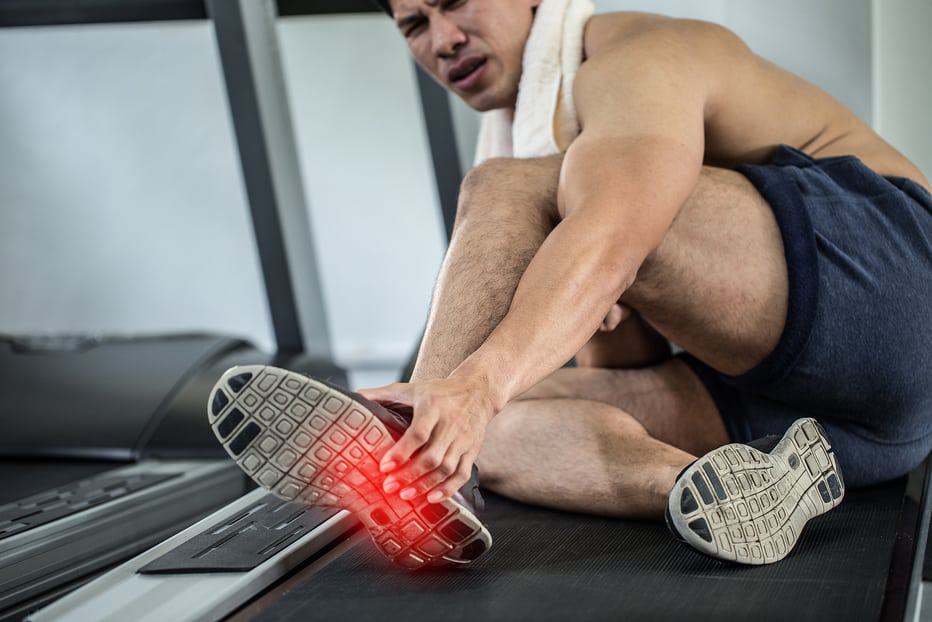
These conditions are common among athletes due to excessive walking, running, or other feet-specific exercise forms.
It occurs when the bursa, the fluid sac located between the Achilles tendon and heel bone, becomes inflamed. Resulting symptoms include pain in the back heel, swelling, tenderness to the touch, and a feeling of “spongy heels.”
Tarsal tunnel syndrome
Starting at the ankle, the tarsal tunnel runs along the entire length of the bottom of the feet. It protects the tibial nerve, which runs inside the tarsal tunnel.1Amar Dhand, Michael J Aminoff. Tarsal tunnel syndrome is caused by an uncommon ossicle of the talus, Medicine (Baltimore). 2018
The compression of the tibial nerve is usually the result of prior ankle injuries.
This condition can produce a burning sensation, pain, tingling, and numbness in the feet’ soles and heels.
Increased activity or standing for long periods of time makes the symptoms worse.
Heel pad syndrome
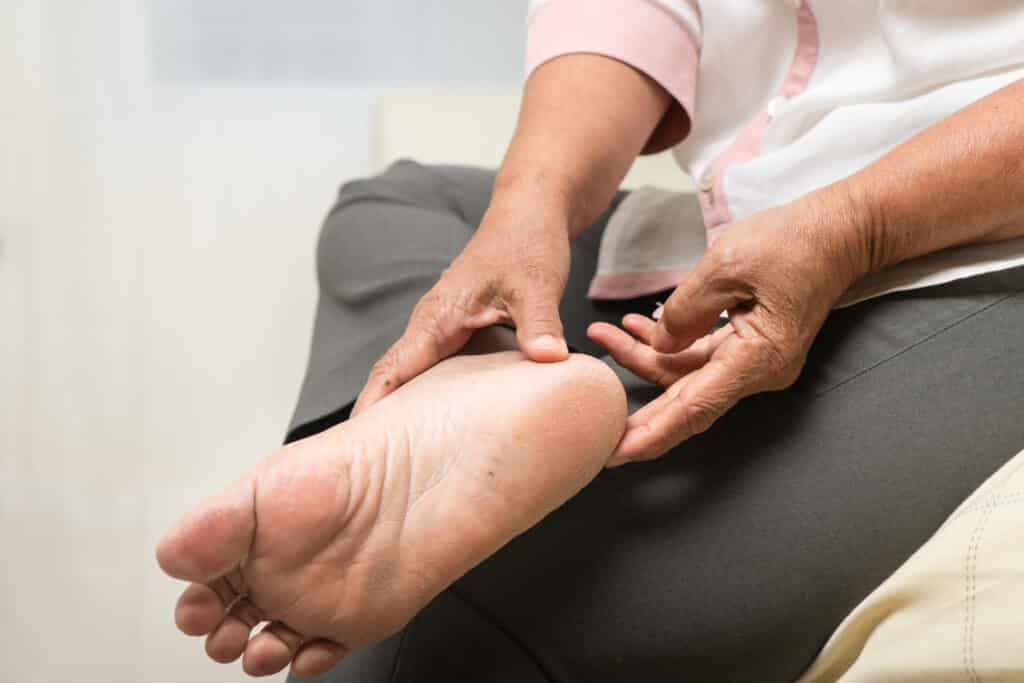
Heel pad syndrome results in pain radiating from the center of the heel.
This affliction is generally caused by deterioration, or heel pad atrophy, of the heel’s fat pad.
Heel pad syndrome can affect those diagnosed with plantar fasciitis and obesity.2Amar Dhand, Michael J Aminoff. Plantar Heel Pain
, Brain
. 2014
Diabetes
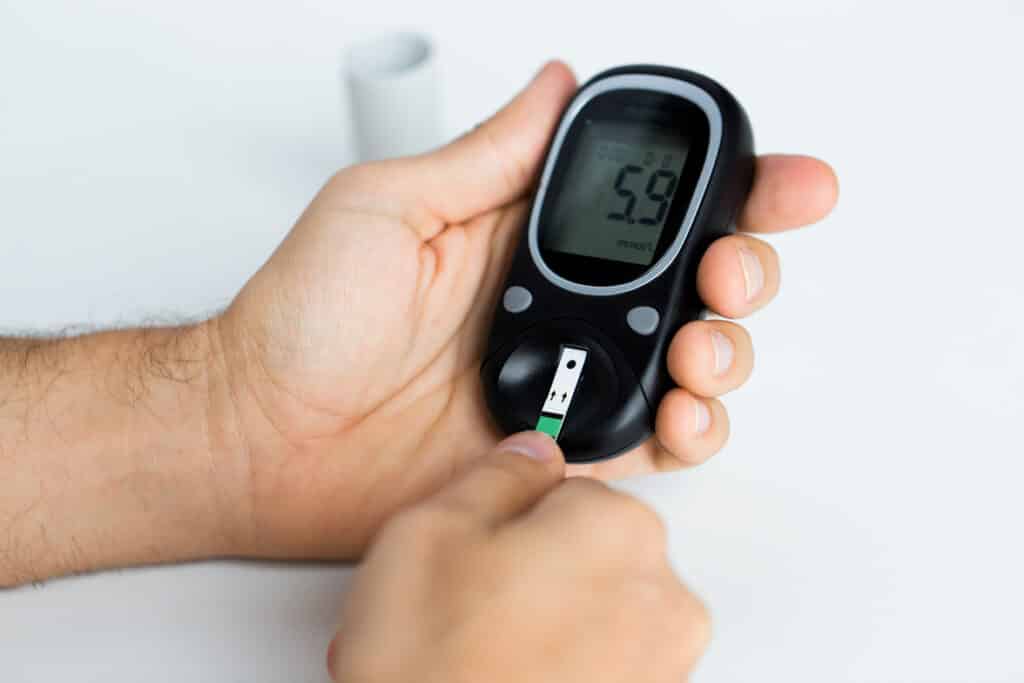
Long-term high glucose levels in the blood eventually cause nerve damage in those who have diabetes.
Foot numbness, tingling and a “pins-and-needles” sensation result from nerve damage, or neuropathy, that happens over time.
Thyroid
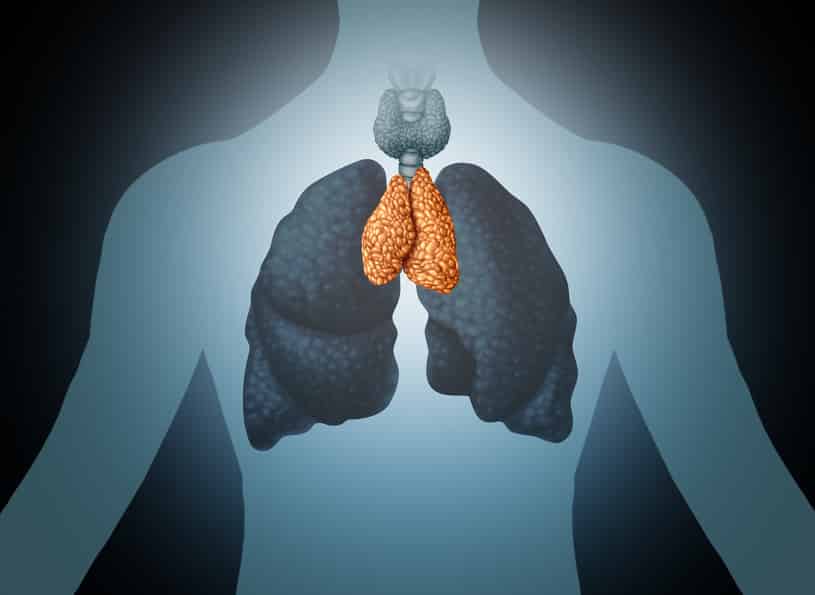
A hypothyroid, or underactive thyroid, causes fluid back-ups and exerts pressure on the nerves in arms and legs. Symptoms range from pain to tingling and numbness in the areas where nerves have been permanently damaged.
Multiple sclerosis (MS)
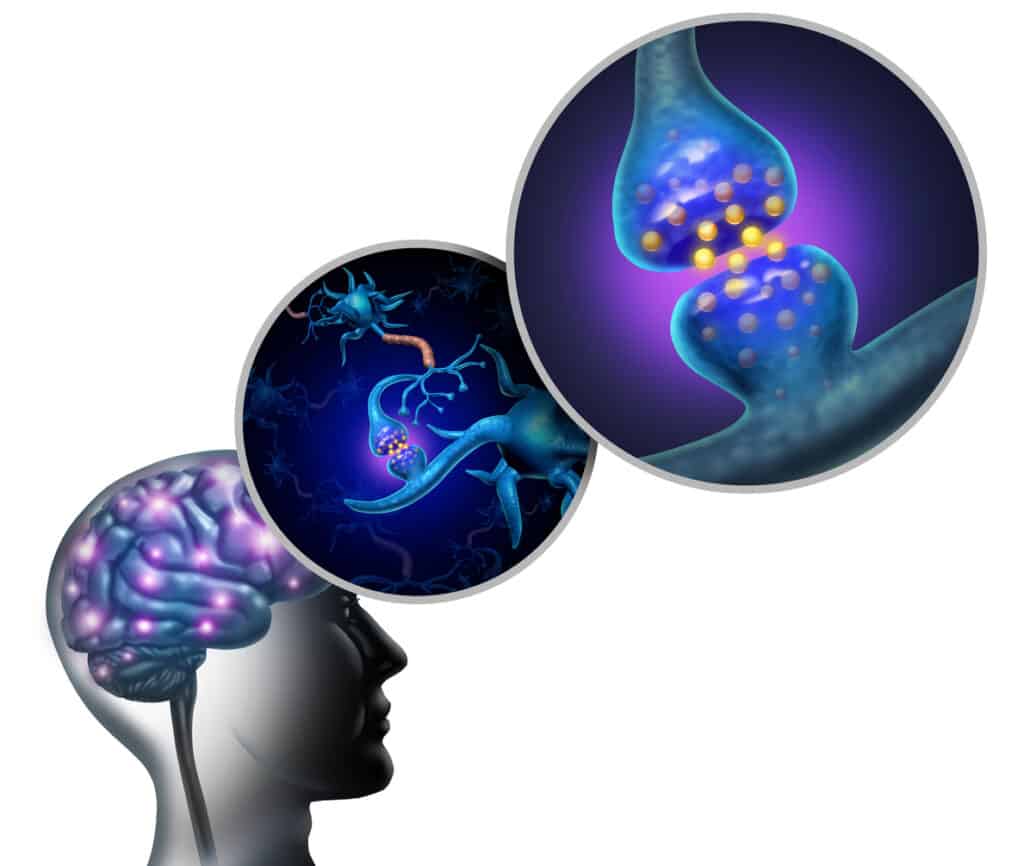
Due to lesions settling in the spine or brain, resulting neurological damage affects the feet by causing tingling or numbness. As the disease progresses, further neurological damage and symptoms worsen over time.
Alcoholism

Permanent nerve damage due to alcoholism can also cause foot and/or heel numbness. Other contributing factors to alcoholic neuropathy are deficiencies in nutrition/nourishment, vitamins, and minerals.
Vitamin/Mineral deficiencies

A deficiency in vitamin B-12 causes numbness and/or tingling in the feet, common, especially in the elderly population. Deficiencies in vitamins B-1, B-6, and vitamin E also contribute to nerve damage and foot numbness.
Running, Walking, Exercise

Athletes or those living an active lifestyle are prone to injuries that cause pain and swelling in the feet.
Over time, trauma, strains, sprains, breaks, and muscle pulls take their toll by producing chronic pain, spongy heels, heel pad atrophy, nerve damage, or numbness in heels and feet.
Ill-fitting shoes

Tight shoes, especially worn for long periods of time or during exercise, cause a prickly tingling sensation, pain, and numbness.
Swapping tight, cramped shoes for proper-fitting shoes usually relieves the problems right away.
Numb Heel During Pregnancy

During pregnancy, a numb heel is due to compression of nerves caused by the ever-changing mother’s body and/or position of the growing fetus.3Vivian P. Kamphuis, Marie P.A. Zegers, and Hille Koppena,. Bilateral Heel Numbness due to External Compression during Obstetric Epidural Analgesia
, Case Rep Neurol. 2015
Nerve compression and tarsal tunnel syndrome are two common symptoms during pregnancy, which feel like numbness or a tingling sensation in the feet’ heels.
Once the baby arrives, these symptoms generally disappear quickly on their own.
Treatments
To treat the pain and associated discomforts of spongy heels, heel pad atrophy or a numb heel, try one or more of the following treatments:
- Getting enough or more rest
- Gentle exercise or stretches
- Massage
- Breathing exercises
- Stress-reducing meditation
- Comforting foot soaks with essential oils, baking soda or Epsom salt
- Ice to relieve swelling
- Warm compresses
- Acupuncture
- Over-the-counter pain relievers such as Tylenol or ibuprofen
When to See a Doctor

It’s time to talk to your doctor if you experience any of these symptoms:
- An injury resulting in searing, severe pain
- Chronic pain or sensations of tingling or heel numbness
- Loss of range of motion, inability to move feet or experience pain while pointing toes toward the floor
- Unable to put any weight on tiptoes
- A limp or inability to walk at a normal pace
Whether due to temporary circumstances, an injury or chronic condition, a numb or spongy heel is not normal. Find out what is causing the pain and discomfort to begin treatment and get relief as soon as possible.
If unable to identify the cause of the pain or numbness, if the symptoms are not getting better or take a turn for the worse, call your doctor for medical advice or schedule a more thorough examination.


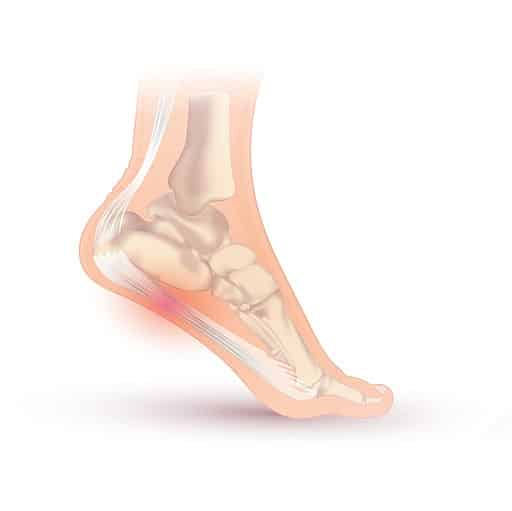
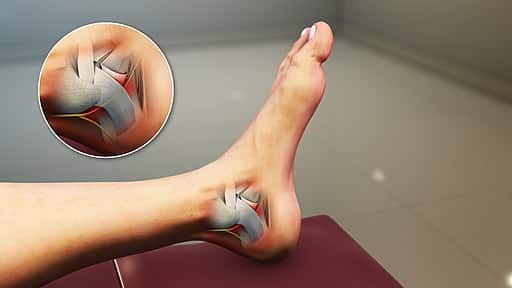
Great product, works better than expected!